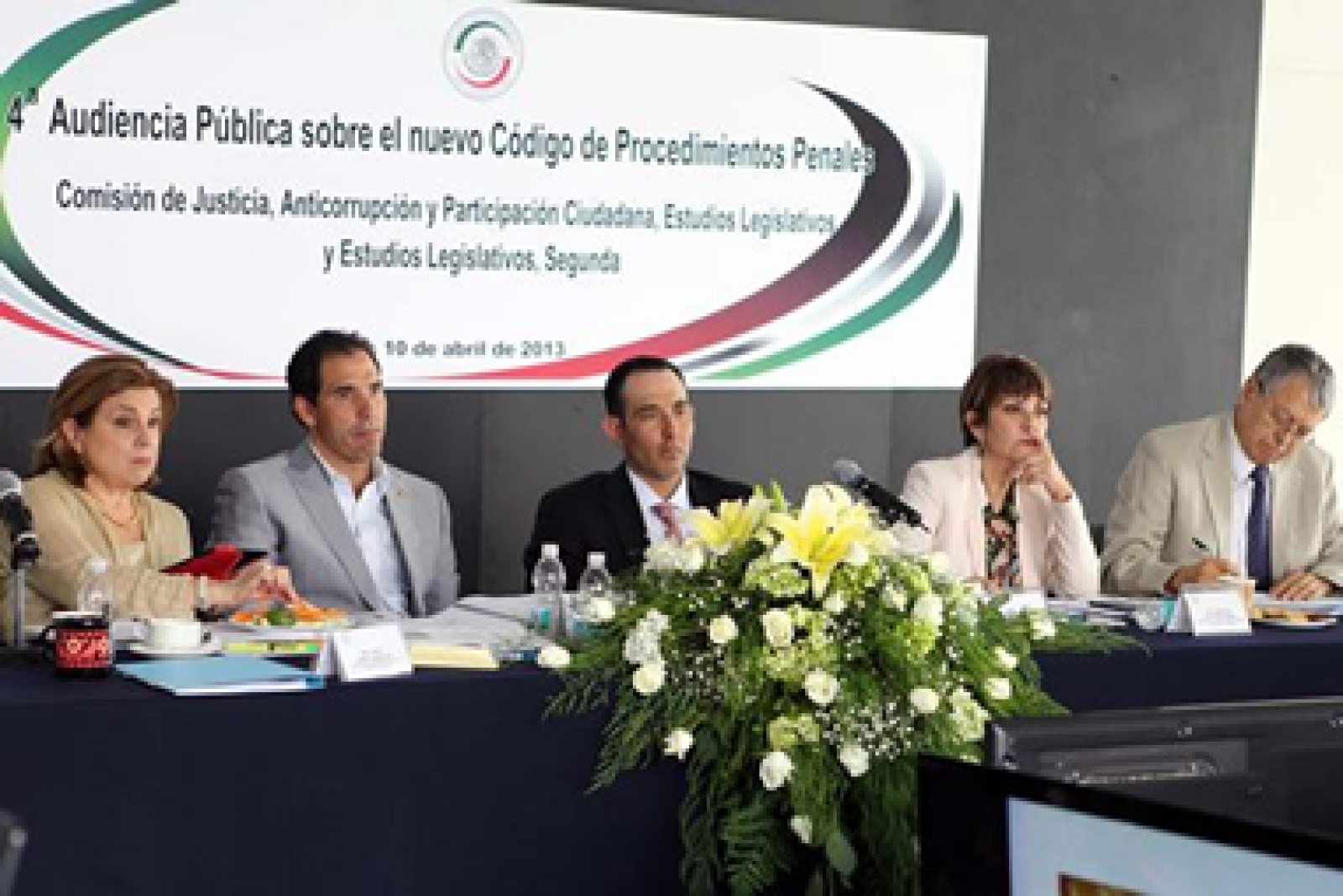
SHARE
In Mexico’s national congress, a ban on serving consecutive terms often makes it difficult for legislators to build on their experience in office or forge strong relationships with their constituents.
In addition, the congress does not hold formal public hearings, which in many countries provide an opportunity for dialogue between lawmakers and citizens. Instead, legislative committees often organize panels or conferences on particular topics, but these don’t provide for a serious examination of issues. There are no formal procedures for choosing witnesses, little planning to provide a comprehensive view of a topic, and rarely are findings incorporated into legislation. The result is that there is little opportunity for the public to engage in the creation of laws to address pressing concerns such as citizen security and justice reform.
But many senators are pushing to change that.
In response to an effort spearheaded by Mexico’s Senate Justice Committee, NDI earlier this year brought together members and staff from the Justice committees of both chambers with an expert from the U.S. House of Representatives to share ideas about how to conduct better, more inclusive public hearings. Marisela Salayandia, a senior staff member on the U.S. House Homeland Security Committee, shared examples of hearing procedures and citizen-member collaboration from the U.S., England, Scotland, Chile, Finland and South Africa. At the Jan. 16-18 sessions, legislators studied how to select and approach public witnesses, including representatives of civil society organizations and subject matter experts; structure question and answer sessions; draft public hearing reports; and incorporate findings into legislation.
During the training, Salayandia helped the legislators and staff from both houses design public hearing plans. Members and staff of the Senate Justice Committee continued to work with NDI after the trainings to improve media relations as they work to ensure the public understands what the panel is doing and to improve the legislature’s public web portal so it is easier for the public to use.
After the training, the Senate Justice Committee held six public hearings from February to April. The first hearing focused on legislation to protect journalists. Across Mexico, violence against reporters, most notably by drug cartels, has become a widespread issue for which citizens are demanding government attention. Since the hearing, legislation has been passed to protect journalists by making it easier to for federal authorities to address crimes against freedom of information.
The next four hearings were about implementing reforms to the federal criminal procedure code, mandated as part of Mexico’s 2008 constitutional reforms. The 2008 reforms included transitioning courts from a trial system based mostly on written briefs to an oral-based system in which the prosecution and defense present evidence and question witnesses in open court to help make the judicial process less cumbersome and more transparent. The sixth hearing focused on telecommunication reform to address monopolies and introduce competition into the industry.
“The structure we have followed for the public hearings seeks to open the debate on justice and security issues, for which there shouldn’t be completely insurmountable political differences,” said Senator Roberto Gil Zuarth, president of the Senate Justice Committee and a proponent of hearing reform. “Many citizen views are left unsaid because there is no opportunity for these citizens to engage in the legislative process. Given the development of distinct initiatives from universities, civil society, etc., no effort should be belittled, but should instead be discussed publicly to get the best input from all."
At one of the hearings, Gil Zuarth publicly pledged to review reports from all of the hearings and use the information to help draft legislation.
“This process is a new way in which the Senate takes advantage of its faculty to consult citizens,” said Ruben Islas Ramos, a lawyer from the National Autonomous University of Mexico (UNAM), who served as a witness in one of the hearings. “They should institutionalize this type of event.”
Legislators and staff from other committees have also shown interest in conducting public hearings. On May 2-3, NDI helped the Public Security Committee of the Lower House develop plans for holding public hearing on creating a national gendarmerie, or paramilitary force, to combat violence and on prison reform. Hearings will take place in the next legislative period, which begins in September.
The training was part of NDI’s program to improve citizen security and address justice reform issues by helping legislators communicate with and engage citizens.
Read more:
- Mexico's REAMM Organization for Women to Receive NDI's 2013 Madeleine K. Albright Grant
- Mexican Women's Coalition Pushes for Reform, Creates "Toolkit" for Advocacy
- Citizen-Candidate Dialogues in Mexico Seek to Increase Government Responsiveness
Published May 31, 2013


